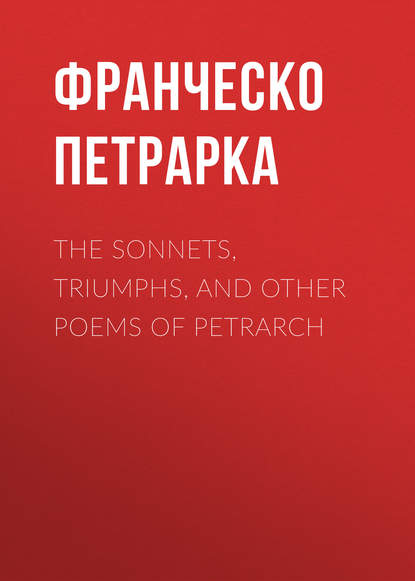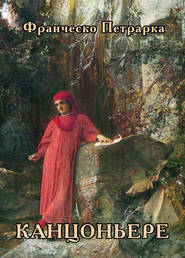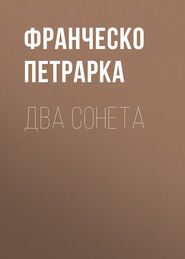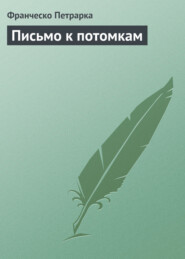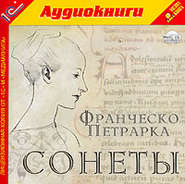По всем вопросам обращайтесь на: info@litportal.ru
(©) 2003-2025.
✖
The Sonnets, Triumphs, and Other Poems of Petrarch
Настройки чтения
Размер шрифта
Высота строк
Поля
Even her shade, nor of her feet a sign,
Outwearied and supine,
As one who midway sleeps, upon the grass
Threw me, and there, accusing the brief ray,
Of bitter tears I loosed the prison'd flood,
To flow and fall, to them as seem'd it good.
Ne'er vanish'd snow before the sun away,
As then to melt apace it me befell,
Till, 'neath a spreading beech a fountain swell'd;
Long in that change my humid course I held,—
Who ever saw from Man a true fount well?
And yet, though strange it sound, things known and sure I tell.
The soul from God its nobler nature gains
(For none save He such favour could bestow)
And like our Maker its high state retains,
To pardon who is never tired, nor slow,
If but with humble heart and suppliant show,
For mercy for past sins to Him we bend;
And if, against his wont, He seem to lend,
Awhile, a cold ear to our earnest prayers,
'Tis that right fear the sinner more may fill;
For he repents but ill
His old crime for another who prepares.
Thus, when my lady, while her bosom yearn'd
With pity, deign'd to look on me, and knew
That equal with my fault its penance grew,
To my old state and shape I soon return'd.
But nought there is on earth in which the wise
May trust, for, wearying braving her afresh,
To rugged stone she changed my quivering flesh.
So that, in their old strain, my broken cries
In vain ask'd death, or told her one name to deaf skies.
A sad and wandering shade, I next recall,
Through many a distant and deserted glen,
That long I mourn'd my indissoluble thrall.
At length my malady seem'd ended, when
I to my earthly frame return'd again,
Haply but greater grief therein to feel;
Still following my desire with such fond zeal
That once (beneath the proud sun's fiercest blaze,
Returning from the chase, as was my wont)
Naked, where gush'd a font,
My fair and fatal tyrant met my gaze;
I whom nought else could pleasure, paused to look,
While, touch'd with shame as natural as intense,
Herself to hide or punish my offence,
She o'er my face the crystal waters shook
—I still speak true, though truth may seem a lie—
Instantly from my proper person torn,
A solitary stag, I felt me borne
In wingèd terrors the dark forest through,
As still of my own dogs the rushing storm I flew
My song! I never was that cloud of gold
Which once descended in such precious rain,
Easing awhile with bliss Jove's amorous pain;
I was a flame, kindled by one bright eye,
I was the bird which gladly soar'd on high,
Exalting her whose praise in song I wake;
Nor, for new fancies, knew I to forsake
My first fond laurel, 'neath whose welcome shade
Ever from my firm heart all meaner pleasures fade.
Macgregor.
SONNET XX
Se l' onorata fronde, che prescrive
TO STRAMAZZO OF PERUGIA, WHO INVITED HIM TO WRITE POETRY
If the world-honour'd leaf, whose green defies
The wrath of Heaven when thunders mighty Jove,
Had not to me prohibited the crown
Which wreathes of wont the gifted poet's brow,
I were a friend of these your idols too,
Whom our vile age so shamelessly ignores:
But that sore insult keeps me now aloof
From the first patron of the olive bough:
For Ethiop earth beneath its tropic sun
Ne'er burn'd with such fierce heat, as I with rage
At losing thing so comely and beloved.
Resort then to some calmer fuller fount,
For of all moisture mine is drain'd and dry,
Save that which falleth from mine eyes in tears.
Macgregor.
SONNET XXI
Amor piangeva, ed io con lui talvolta
HE CONGRATULATES BOCCACCIO ON HIS RETURN TO THE RIGHT PATH
Love grieved, and I with him at times, to see
By what strange practices and cunning art,
You still continued from his fetters free,
From whom my feet were never far apart.
Since to the right way brought by God's decree,
Outwearied and supine,
As one who midway sleeps, upon the grass
Threw me, and there, accusing the brief ray,
Of bitter tears I loosed the prison'd flood,
To flow and fall, to them as seem'd it good.
Ne'er vanish'd snow before the sun away,
As then to melt apace it me befell,
Till, 'neath a spreading beech a fountain swell'd;
Long in that change my humid course I held,—
Who ever saw from Man a true fount well?
And yet, though strange it sound, things known and sure I tell.
The soul from God its nobler nature gains
(For none save He such favour could bestow)
And like our Maker its high state retains,
To pardon who is never tired, nor slow,
If but with humble heart and suppliant show,
For mercy for past sins to Him we bend;
And if, against his wont, He seem to lend,
Awhile, a cold ear to our earnest prayers,
'Tis that right fear the sinner more may fill;
For he repents but ill
His old crime for another who prepares.
Thus, when my lady, while her bosom yearn'd
With pity, deign'd to look on me, and knew
That equal with my fault its penance grew,
To my old state and shape I soon return'd.
But nought there is on earth in which the wise
May trust, for, wearying braving her afresh,
To rugged stone she changed my quivering flesh.
So that, in their old strain, my broken cries
In vain ask'd death, or told her one name to deaf skies.
A sad and wandering shade, I next recall,
Through many a distant and deserted glen,
That long I mourn'd my indissoluble thrall.
At length my malady seem'd ended, when
I to my earthly frame return'd again,
Haply but greater grief therein to feel;
Still following my desire with such fond zeal
That once (beneath the proud sun's fiercest blaze,
Returning from the chase, as was my wont)
Naked, where gush'd a font,
My fair and fatal tyrant met my gaze;
I whom nought else could pleasure, paused to look,
While, touch'd with shame as natural as intense,
Herself to hide or punish my offence,
She o'er my face the crystal waters shook
—I still speak true, though truth may seem a lie—
Instantly from my proper person torn,
A solitary stag, I felt me borne
In wingèd terrors the dark forest through,
As still of my own dogs the rushing storm I flew
My song! I never was that cloud of gold
Which once descended in such precious rain,
Easing awhile with bliss Jove's amorous pain;
I was a flame, kindled by one bright eye,
I was the bird which gladly soar'd on high,
Exalting her whose praise in song I wake;
Nor, for new fancies, knew I to forsake
My first fond laurel, 'neath whose welcome shade
Ever from my firm heart all meaner pleasures fade.
Macgregor.
SONNET XX
Se l' onorata fronde, che prescrive
TO STRAMAZZO OF PERUGIA, WHO INVITED HIM TO WRITE POETRY
If the world-honour'd leaf, whose green defies
The wrath of Heaven when thunders mighty Jove,
Had not to me prohibited the crown
Which wreathes of wont the gifted poet's brow,
I were a friend of these your idols too,
Whom our vile age so shamelessly ignores:
But that sore insult keeps me now aloof
From the first patron of the olive bough:
For Ethiop earth beneath its tropic sun
Ne'er burn'd with such fierce heat, as I with rage
At losing thing so comely and beloved.
Resort then to some calmer fuller fount,
For of all moisture mine is drain'd and dry,
Save that which falleth from mine eyes in tears.
Macgregor.
SONNET XXI
Amor piangeva, ed io con lui talvolta
HE CONGRATULATES BOCCACCIO ON HIS RETURN TO THE RIGHT PATH
Love grieved, and I with him at times, to see
By what strange practices and cunning art,
You still continued from his fetters free,
From whom my feet were never far apart.
Since to the right way brought by God's decree,





